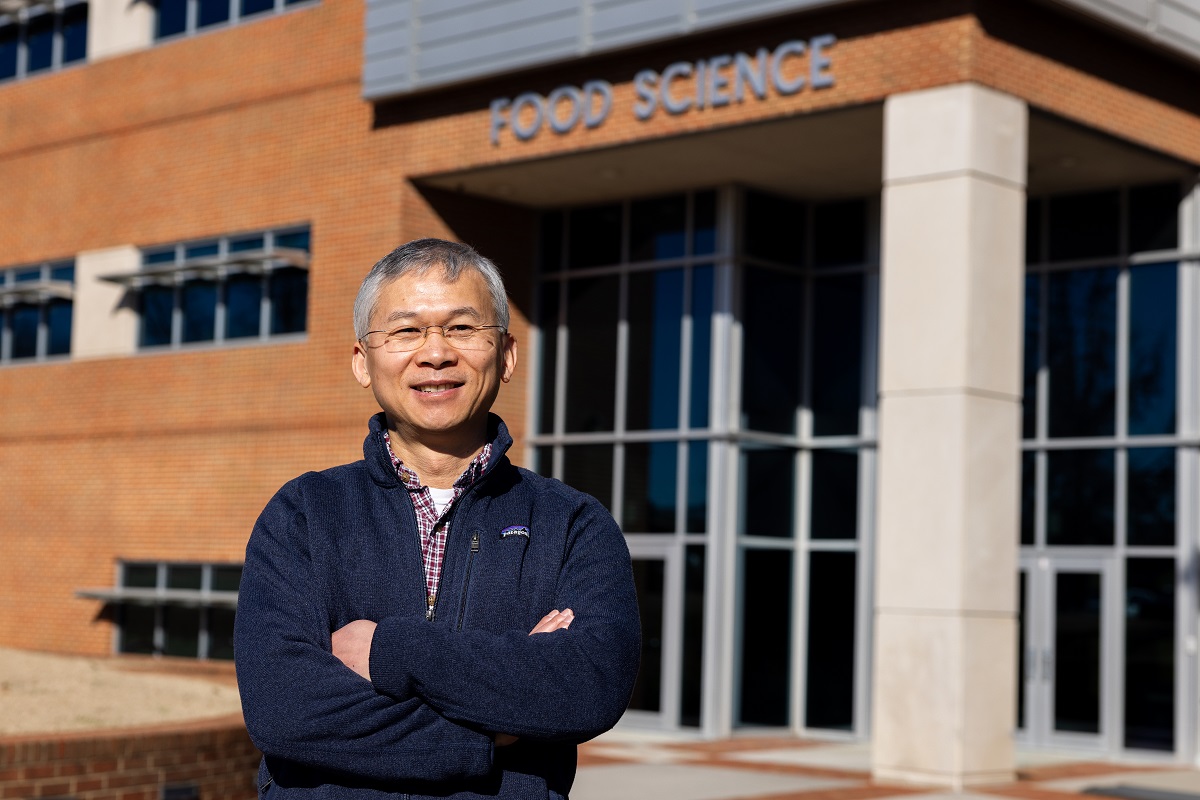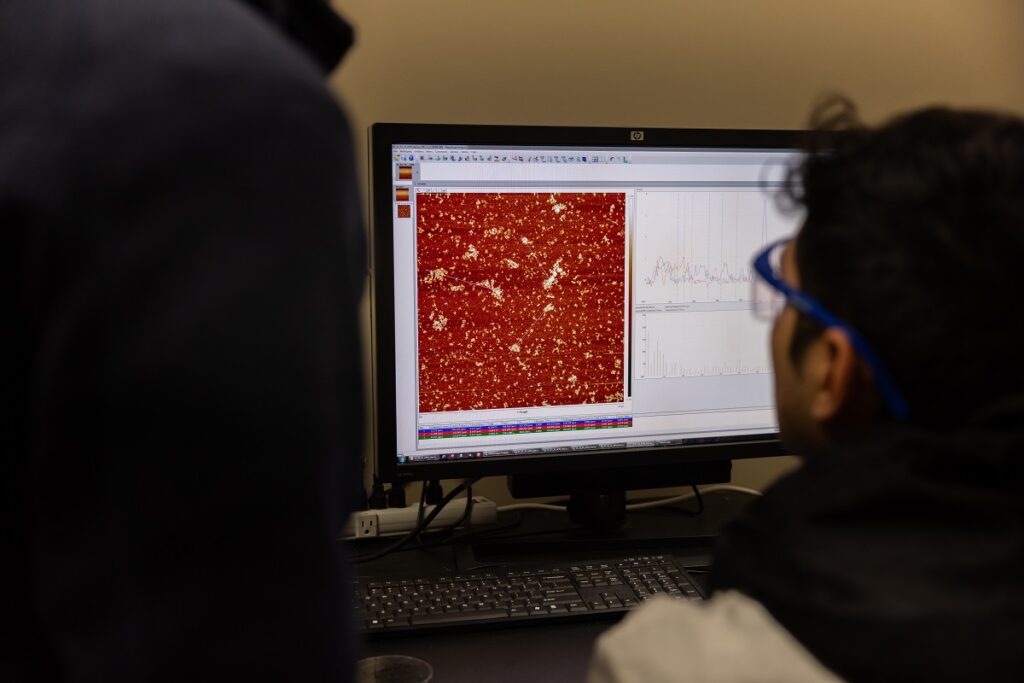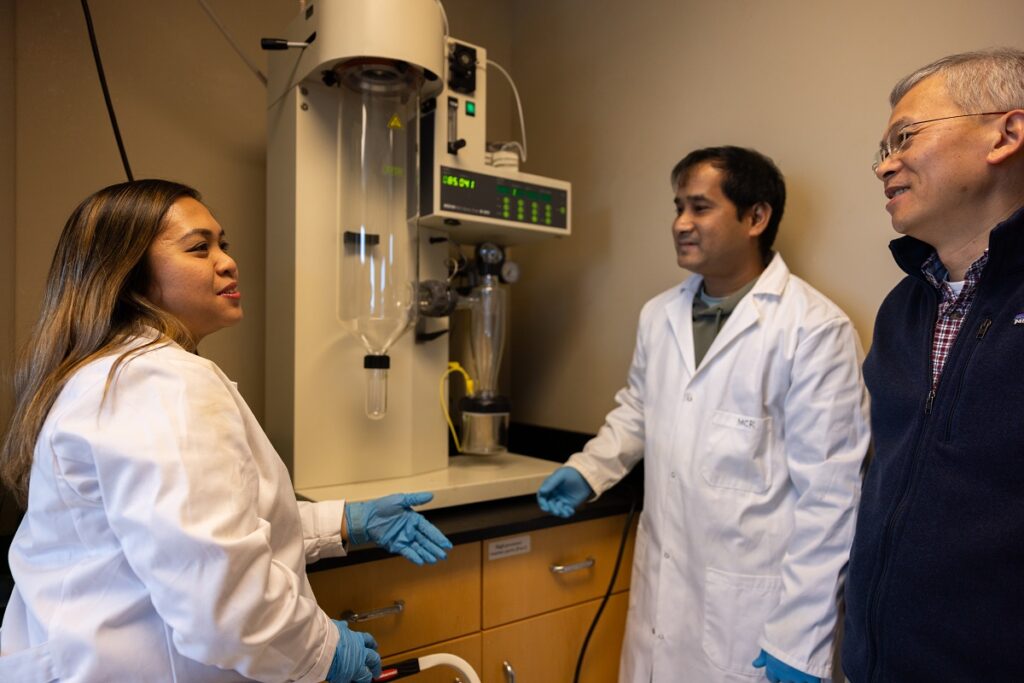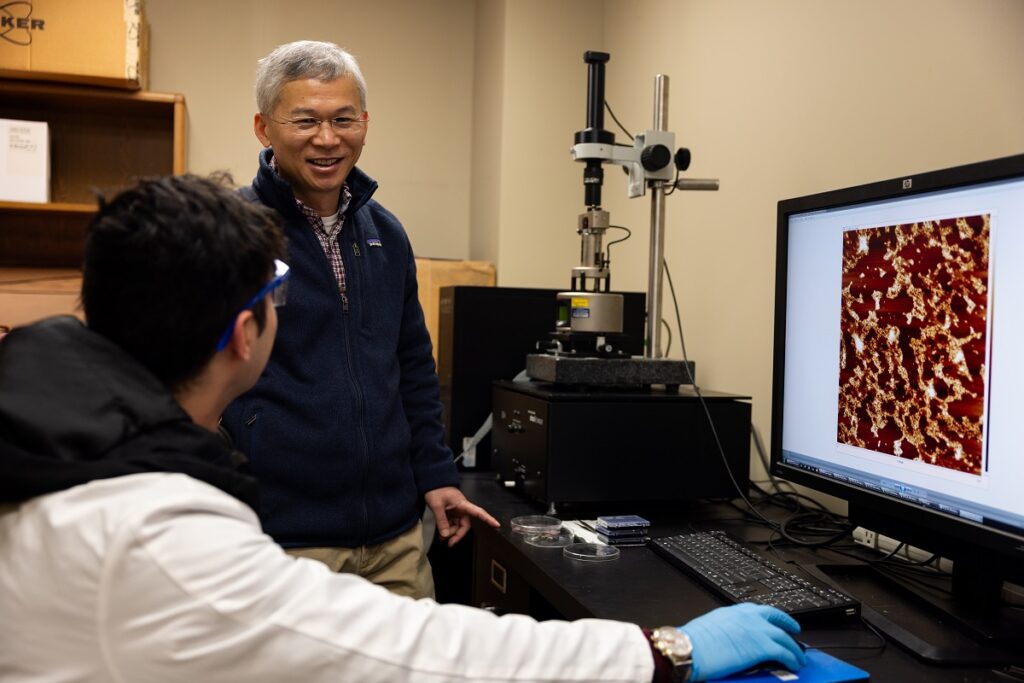
Professor of food science explores innovative solutions for safer, healthier foods
Can you describe your career journey and how it led to your arrival at the University of Tennessee Institute of Agriculture?
My education and career paths before joining UTIA were not quite like my colleagues. I received degrees from three majors: Animal Nutrition and Feed Processing (BS), Food Science (MS, PhD), and Chemical Engineering (PhD). I worked as an engineer for more than 5 years before starting graduate school at NC State. I was a post-doctoral research associate in Chemical Engineering at Iowa State University before joining UTIA and was so happy to return to the warmer southeast.
What inspired you to pursue a career in food science?
Growing up in a rural area, my dream when applying to college was to study finance to make big money, but life magically led me back to agriculture. I started my career in designing animal feed processing mills after college. My options for graduate school included animal nutrition and food engineering. I chose food engineering because I liked math more than biology. My choice also allowed me to learn chemical engineering later. I became more fascinated by food science after I was able to put all my education together and integrate my knowledge in many STEM subject areas.
What is your main research focus, and why is it important?
I study food ingredients that are the foundation to making our food supplies enjoyable, healthy, and safe. My research philosophy is to treat food ingredients as materials. Like playing Lego, it is based on knowing what Lego pieces (food molecules) we can play with and how they can be connected (with chemistry and physics). We can then use our imagination (structural design based on physical, chemical, and engineering principles) to build a specific geometry to meet a specific consumer need (appeal, taste, texture, safety, and health).
How does your research contribute to improving the nutritional value and health benefits of everyday foods?
I study food preservatives to combat foodborne pathogens in fresh produce. I also study the science and technology of incorporating bioactive ingredients into food products such as vitamin D, polyphenols, and probiotics without compromising food quality so that their biological activities can be achieved in our body to improve nutrition and health.

What has been your proudest moment while working in the UT Department of Food Science?
Hearing from peers commending my former advisees in their career makes me proud. It was their outstanding work at UT that has earned me many awards, including being elected as a fellow of our professional organization – Institute of Food Technologists.
What do you enjoy most about the work you do?
Academic freedom is what I enjoy most about my work. Seeing students understanding tough subjects taught by me is rewarding. Seeing my research ideas being proved by the results, like seeing a fantasy house built from Lego pieces, is also satisfying. All this is possible because I am fortunate to have the opportunity to work with outstanding colleagues and advisees.

What is something about your field everyone should know?
There is so much that goes into food ingredients research: chemistry, physics, engineering, microbiology, nutrition, biology, etc. It is exciting to learn about food ingredients before they are incorporated into foods, after they become a part of foods, and after ingestion. There are so many types of food ingredients serving various purposes, and therefore, opportunities to advance food ingredients science and technology are endless.
Looking to the future, what challenges or opportunities do you see in the field of food ingredient technology and structure design?
To provide Real. Life. Solutions., scalable and cost-effective processes are to be developed to produce sustainable food ingredients with the designed structures. This requires interdisciplinary collaborations and transdisciplinary approaches.
What advice would you give students or young researchers interested in pursuing a career in food science and ingredient technology?
Everyone eats and we need ingredients to make food. There are ample opportunities in food science and knowing the ins and outs of food ingredients will make you stand out from your peers. Be curious, learn from experts in all relevant disciplines, and pick a niche area that you are passionate about.

What do you like to do outside of work and/or what is a fun fact about yourself that your colleagues and students wouldn’t know?
I have been running since graduate school. I go running when things don’t go as expected, e.g., rejection of proposals and papers, to release stress.
